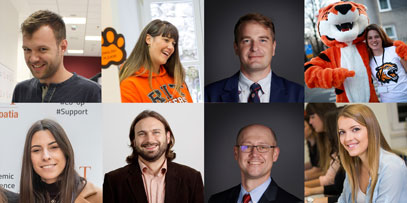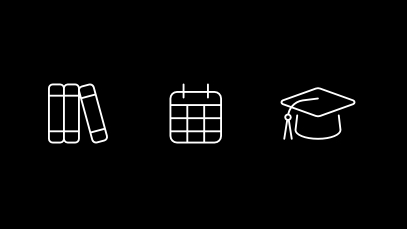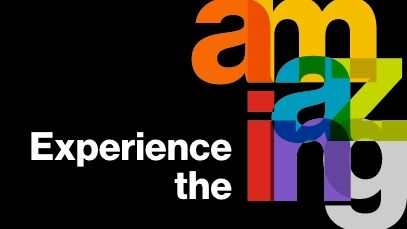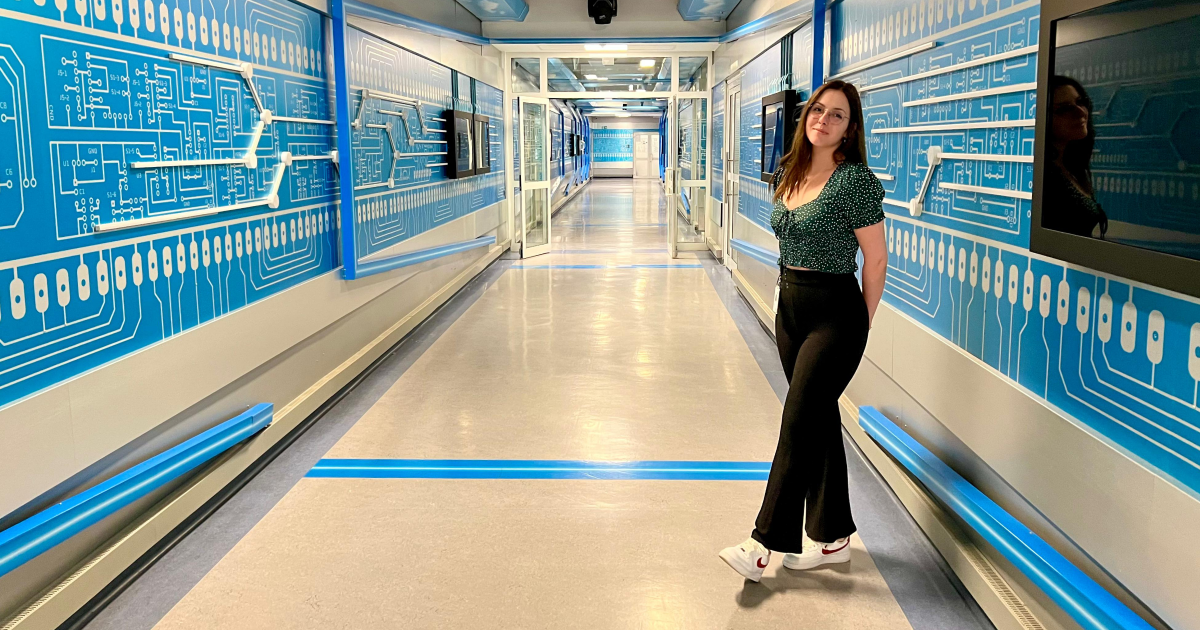Insights into Student Co-ops: Antea Klapež and her Co-op at Ericsson Nikola Tesla
Antea Klapež is a Web and Mobile Computing student and is currently completing her final co-op as a Software Developer at Ericsson Nikola Tesla. One of the lessons Antea learned at Ericsson is that your current knowledge does not matter if you are not willing to build on it. She shared insights on her projects, team environment, and how her education at RIT Croatia has prepared her for the professional world.
Q: What do you look forward to when going to co-op at Ericsson Nikola Tesla?
Antea: I mainly look forward to working on various projects and broadening my knowledge while completing my milestones. However, another reason for looking forward to going to my co-op at Ericsson Nikola Tesla is the team I am in. I have been extremely lucky to find an environment where learning and the drive to learn are the main priorities instead of previous knowledge. Every single person in the team is ready to help with any kind of problem which I appreciate a lot.
Q: How did the education at RIT Croatia prepare you for your co-op?
Antea: Education at RIT Croatia gave me an amazing foundation for building on my knowledge of programming. During my second year, I was a programming tutor for Java so I came prepared to not only write the code but also debug codes someone else made. Additionally, the courses in my second year helped a lot with learning about communication between various parts that make up the whole application. I mainly work in the backend, so courses that are focused on servers, APIs, database connectivity, software patterns and principles, and the theory behind it were the most helpful. Not only did classes at RIT Croatia prepare me for just simply producing code, but they also gave me insight into producing code in a professional setting by using Git and GitLab for managing the code. This skill is important because that is how the source code is often managed in actual companies. Therefore, RIT Croatia prepares students for professional work in all possible aspects.
Q: Can you share an experience where you used knowledge from your studies to solve a real problem during your co-op?
Antea: As I was given tasks that exceeded my knowledge, I would always find my way towards a problem in my code. When that happens you usually go back to check the basics, so in the end, it was not my newly acquired knowledge that helped, but my previous knowledge about best practices, patterns, algorithms, and debugging here at RIT Croatia.
Q: What skills or knowledge from your co-op will be most helpful for your remaining studies and future career?
Antea: I worked with many different technologies and programming languages. I learned what it takes to train an AI model, how to build a microservice for an IoT platform, how that platform works, what technologies are used to make one, and much more. Also, I learned a lot about security, good software architecture, and all the steps it takes to make an application in a professional setting. I think what I cherish the most is the fact that I gained experience working in a professional setting and the knowledge of new technologies I tried.
Q: What are 3 things you have learned since starting co-op at Ericsson?
Antea: 3 things I have learned since starting a co-op at Ericsson Nikola Tesla is that your current knowledge does not matter if you are not willing to build on it. Learning is a part of life, and if you are not willing to learn you are not willing to grow and better yourself.
Another is not to be afraid of asking questions. If you do not understand something - ask, if you hit a wall and cannot think of a solution - ask. There is no point in going in a loop for hours if a pair of fresh eyes could see the solution in minutes.
The last thing would probably be that in professional workspaces, team work is dream work. You cannot expect to have the most impact on a project as a single worker, but you will certainly have the most impact as a team.











